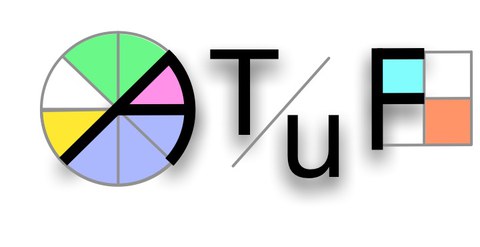AtuF
The AtuF-project is a multidisciplinary project and is conducted in collaboration with the Centre of e-Learning Technology of the German Center of Artificial Intelligence.
It was supported by the German National Science Foundation (DFG - Deutsche Forschungsgemeinschaft).
The goals of the AtuF project are the design and evaluation of adaptive feedback components and strategies for fraction learning.
In the 1st phase of AtuF, we analysed the domain and developed a corresponding format for knowledge representation. We iteratively designed and evaluated procedural and conceptual feedback components on the basis of the Interactive Tutoring Feedback-Model. Furthermore, we constructed a learner model based on the domain representation, and run an evaluation study with 207 6th- and 7th-graders.
The focus of AtuF-II was on development and investigation of static feedback adaption strategies that tailor the content and sequence of feedback messages to a set of factors identified as having a consistent impact on feedback effectiveness based on the analysis of AtuF-I study logs. This analysis revealed that girls benefit more from tutoring feedback than boys, and that motivational variables (perceived competence and intrinsic motivation) are worth considering for static adaptation. These results informed the extension of the student model and the design of two static adaptation strategies tailoring procedural or conceptual feedback components to task and student characteristics. In a study with 145 6th- and 7th-graders, the cognitive and motivational effects of these adaptation strategies were examined. The data analyses so far reveal complex patterns of results: the type of feedback strategy mattered for girls’ knowledge gain but did not for their motivation. For boys, knowledge gain was not significantly affected by the type of feedback strategy, while several motivational variables changed negatively under the conceptual feedback strategy. We have also found that employed static, coarse-grained student characteristics are not informative enough to warrant consistent effect of static feedback adaptation. More detailed factors derived from idiosyncratic learning behaviour need to be taken into account.
The focus of the third project phase is on the development and evaluation of dynamic adaptation strategies for tutoring feedback. Since coarse-grained static student characteristics lack important information to ensure feedback effectiveness, the goal is to optimise the parameters of feedback strategies not only based on students’ coarse-grained parameters (i.e. gender and initial motivational characteristics), but also on fine-grained, dynamic and individual histories of learning interactions and the semantic relations between the exercises and the core knowledge components in the domain. More specifically, we plan to design and implement (a) procedures for fine-grained diagnosis of solution steps in multi-step fraction exercises, (b) an extension of the student model integrating fine-grained diagnostic information, and (c) adaptation strategies tailoring feedback to learners using the extended student model. Finally, the conditions and effects of the dynamic feedback adaptation strategies will be evaluated.
Publications
- Narciss, S., Sosnovsky, S., Schnaubert, L., Andrès, E., Eichelmann, A., Goguadze, G., & Melis, E. (in press). Exploring feedback and student characteristics relevant for personalizing feedback strategies. Computers & Education.
- Narciss, S. (2013). Designing and Evaluating Tutoring Feedback Strategies for digital learning environments on the basis of the Interactive Tutoring Feedback Model. Digital Education Review, 23, 7-26. [Accessed: 19/06/2013] http://greav.ub.edu/der
- Eichelmann, A., Narciss, S., Schnaubert, L., & Melis, E. (2012). Typische Fehler und Fehlerquellen bei der Addition und Subtraktion von Brüchen – Ein Review zu empirischen Fehleranalysen. Journal für Mathematik-Didaktik, 33, 29–57. DOI 10.1007/s13138-011-0031-5
- Narciss, S. (2012). Feedback in instructional contexts. In N. Seel (Ed.), Encyclopedia of the Learning Sciences, Volume F(6), pp. 1285-1289. New York: Springer Science & Business Media, LLC.
- Narciss, S. (2012). Feedback strategies. In N. Seel (Ed.), Encyclopedia of the Learning Sciences, Volume F (6), pp. 1289-1293. New York: Springer Science & Business Media, LLC.
- Schnaubert, L., Andres, E., Narciss, S. & Sosnovsky, S. (2012). Using Local and Global Self-Evaluations to Predict Students' Problem Solving Behaviour. In A. Ravenscroft, S. Lindstaedt, C. Delgado Kloos & D. Hernandez-Leo (Eds.), 21st Century Learning for 21st Century Skills 7th European Conference of Technology Enhanced Learning, EC-TEL 2012, Saarbrücken, Germany, September 18-21, 2012. Proceedings (pp. 334-347). Lecture Notes in Computer Science, Volume 7563, DOI: 10.1007/978-3-642-33263-0
- Schnaubert, L., Andrès, E., Narciss, S., Eichelmann, A., Goguadze, G., & Melis, E. (2011). Student Behavior in Error-Correction-Tasks and Its Relation to Perception of Competence. In C. Delago Kloos, D. Gillet, R. Crespo Garcìa, F. Wild, & M. Wolpers (Eds.) Towards Ubiquitous Learning, Proceedings of the 6th European Conference on Technology Enhanced Learning (pp. 370 - 383). Berlin: Springer. [STELLAR Stakeholders Distinct Award].
- Eichelmann, A., Narciss, S., Schnaubert, L., Melis, E. & Goguadze, G. (2011). Design und Evaluation von interaktiven webbasierten Bruchrechenaufgaben. In H. Rohland, A. Kienle & S. Friedrich (Hrsg.), DeLFI 2011. Die 9. e-Learning Fachtagung Informatik (S. 31-42). Bonn: Köllen Verlag.
Melis, E., Faulhaber, A., & Doost, A. S. (2010). Supporting Flexible Competency Frameworks. In X. Luo, M. Spaniol, L.Wang, Q. Li, W. Nejdl, & W. Zhang (Eds.), Advances in Web-Based Learning - ICWL 2010 (pp. 210-219). doi:10.1007/978-3-642-17407-0 2. - Eichelmann, A., Narciss, S., Faulhaber, A., & Melis, E. (2008). Analyzing computer-based fraction tasks on the basis of a two-dimensional view of mathematics competencies. In J. Zumbach, N. Schwartz, T. Seufert, & L. Kester (Eds.), Beyond knowledge: The legacy of competence. Meaningful computer-based learning environments (pp. 125-134). Dordrecht: Springer.
- Melis, E., Faulhaber, A., Eichelmann, A., & Narciss, S. (2008). Interoperable Competencies Characterizing Learning Objects in Mathematics. In B. Woolf et al. (Eds.), Intelligent Tutoring System, Lecture Notes in Computer Science 5091 (pp. 416-425). Berlin: Springer.

